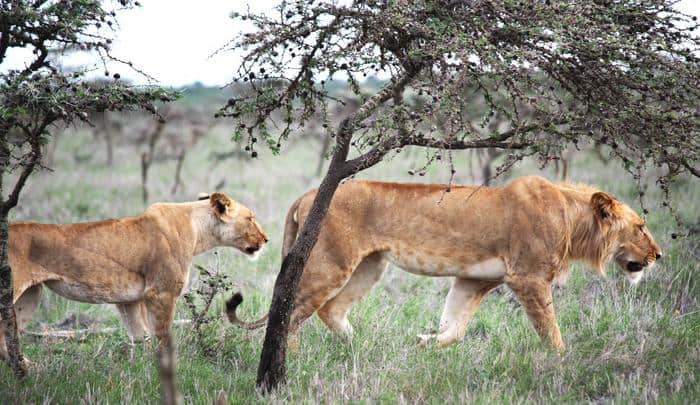Share this article
A tiny ant is changing the diet of lions
Acacia trees are disappearing, robbing the predators of the cover they use to hide
Tiny ants are having a big impact on the lives of lions.
In a study published in Science, researchers found that invasive ants are changing the tree cover in Ol Pejeta Nature Conservancy in Kenya, making it harder for lions to hunt zebras—their preferred prey.
Combining remote cameras, tracking collars and other data, the three-decade-long study explored a web of interactions in the ecosystem. As part of that, researchers discovered that the big-headed ant (Pheidole megacephala) has set off a chain of events that has shifted the lions’ predatory behavior.
The invasive insects have destroyed colonies of native ants that nest in acacias and protect them from leaf-eating animals. Lions (Panthera leo) use the trees as cover for ambushing zebras (Equus quagga). With fewer acacias, the lions are turning their attention to buffaloes (Syncerus caffer), but they are a more challenging prey.
“These tiny invaders are cryptically pulling on the ties that bind an African ecosystem together, determining who is eaten and where,” said Todd Palmer, an ecologist and professor in the Department of Biology at the University of Florida and an author on the study.
Header Image: Lions in Ol Pejeta Nature Conservancy use acacia trees as cover to ambush zebras. Credit: Todd Palmer








